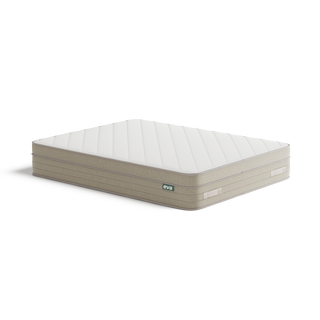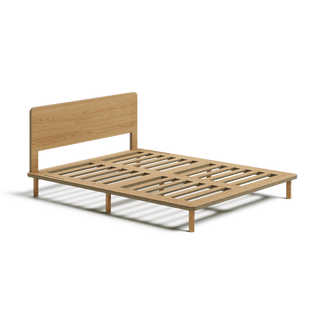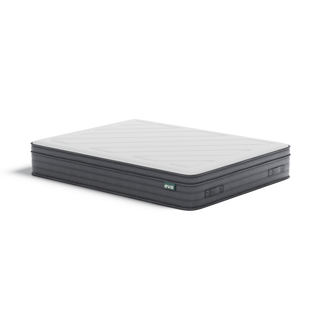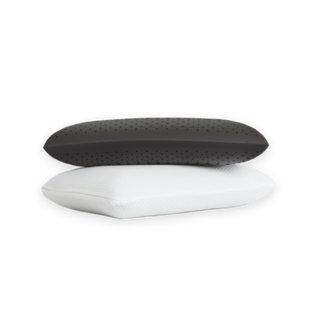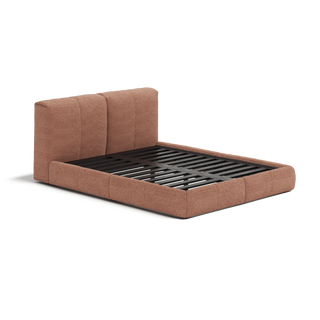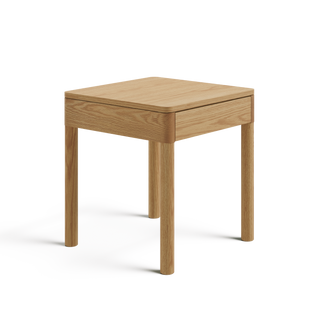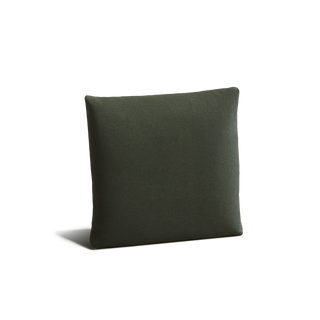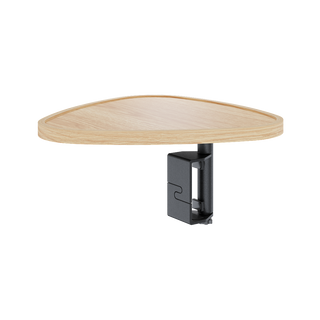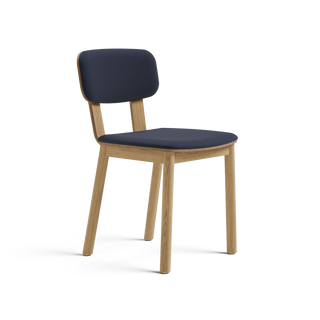To kick off our 'recipe for better sleep' series we sat down with lawyer turned yoga teacher Brooke Elliston.
In the video below, Brooke takes us through a powerful yet simple breathing technique to calm the mind, reduce stress and improve sleep quality.
Loved the video? Check out our interview with Brooke below as we dive deeper into the science of the breath and why it's so important for our health.
How did you get into yoga?
Once upon a time in another pencil-skirted life, I was a Lawyer, busy billing my time in 7 minute increments!
Although there were aspects of my career that I loved, after 4.5 years of practicing, I started suffering from debilitating & seemingly perplexing symptoms—swelling in the throat, numbness in arms and legs, full-body rashes!
One particular day I found myself in the emergency room after my legs went numb and gave way underneath me. When the doctors tested me for a diagnosis I couldn’t walk in a straight line, nor could I answer basic questions about myself to demonstrate healthy cognitive functioning.
After a terribly scary night and many tests, the neurologist visited me the next day only to tell me all of these debilitating symptoms I had been suffering for months were a result of stress, and more specifically from shallow, rapid breathing, also known as hyperventilation.
This was one of life’s big ‘wake ups’, as I suddenly realised the disconnect between my mind and body.
"I thought I was a reasonably switched-on person, so how on earth could I not know how to breathe?"
So began the journey of learning how to breathe—synonymous with yoga.
What kind of benefits can people experience from yoga and meditation?
Rather than addressing symptoms, yoga addresses the whole being. The result is increased health and well-being on all levels—physical, mental, emotional, and spiritual.
Yoga is a spiritual practice intended to still the mind’s turbulence in order to experience the deeper soul-self within. The teachings state that as the mind becomes tranquil and peaceful like a lake, we have more capacity to navigate and even embrace the natural fluctuations of life, the inevitable highs, and the challenges, with gracefulness and ease.
When we step out of our Olympic levels of stress and busyness and instead drift into the slow river of wonder, we can experience the richness of each moment. Life stops passing us by and we start to see, life is a series of precious moments. If we miss our moments, we miss our life!

Why is focusing on the breath so important?
So much of our health can be gleaned from the way that we breathe. Yet, most of us are clueless when it comes to functional breathing and the vast detrimental effects of disordered breathing.
The way we breathe directly impacts our entire psychophysiology, which has the potential to stabilise or destabilise our health in profound ways. Focusing on the breath can transform our state of mind and every vital physical function.
To understand this, I personally believe we all need to understand basic respiratory physiology.
Fundamentally, breath is a biochemical process founded on the balance of oxygen (o2) and carbon dioxide (co2). It is the primary chemical reaction in the body that sustains us, and every other chemical reaction uses the alchemy of these two gases to gauge the correct level of response. This is HUGE! Want balanced hormones and a healthy metabolism? Look at the breath!
If our respiratory chemistry is well balanced, it's far more likely that our cardiovascular, digestive, endocrine, immune, nervous, renal, muscular, skeletal, and reproductive systems will function well too.
How do you work with clients?
I always start with subtle abdominal breathing.
What is this? There are four simple steps
- Close the mouth and breathe through the nose day and night
- Maintain good posture so the diaphragm can function effectively
- BIG is not the same as DEEP. We will take a deep breath but not big breaths. Inhale just enough breath to fill the first centimetre of your nostrils, then stretch that volume of breath, down into your belly. The breath will become thin as it stretches vs wide as if you had your mouth open, quiet (rather than loud), and invisible (if you had a feather at the end of the nostrils it wouldn’t move because your breath was so gentle).
- Relax the chest and all of the accessory breathing muscles so they don't move when you breathe. As you breathe deep into the belly, expand the abdomen on the inhale and gently draw it back to the spine on the exhale.
Why?
Pranayama - the art and science of breathing is primarily a practice of breath restraint. The less we breathe, the more we build up co2 inside our body. Contrary to popular belief, carbon dioxide has wonderful benefits inside the body. Without co2 we cannot optimally use the oxygen we inhale, including offloading oxygen red blood cells to the tissues and organs, including our heart and brain.
The common habit of over-breathing/hyperventilation that I had (and many others have), causes too much co2 to be exhaled from the lungs, in turn reducing co2 levels in the blood. When co2 levels are less than adequate, the transfer of 02 from blood to muscle and organs is limited.
This means even if we are simply taking ‘big breaths’ we are front-loading the system with o2, but not getting the o2 to where it actually needs to be! Bigger breathing actually de-oxygenates us. Big is not the same as deep. Deep means down into the belly (vs chest). Subtle breathing helps us direct o2 to where it needs to be, in the tissues and organs to create energy and in our brain and our heart.

What does good sleep means to you?
- Calm, restful, uninterrupted sleep
- Fewer wakings during the night and more likelihood of sleeping through the night (including fewer bathroom breaks)
- Waking up feeling energised and buoyant
- Being more productive and alert throughout the day
What's your recipe for sleep?
I always do some exercise during the day so my body feels relaxed. To calm my mind and boost Co2 levels, I practice reduced breathing for 7-10 minutes, 3 times interspersed throughout the day. The best times are first thing in the morning, noon, and right before bed.
I also eat dinner early so I'm not going to bed with a full stomach (which impedes functional breathing), keep devices out of the room, wifi off in the house at night, and read before sleep.
I sleep on my side and highly recommend avoiding sleeping on your back. A good mattress is of course imperative to this, with the right amount of firmness (Eva is the perfect firmness to support side sleeping). A cool airy bedroom is also very important, and the right cooling and ventilation in your mattress.
Want more from Brooke? Visit her website for more tips on yoga and mastering your breath.

